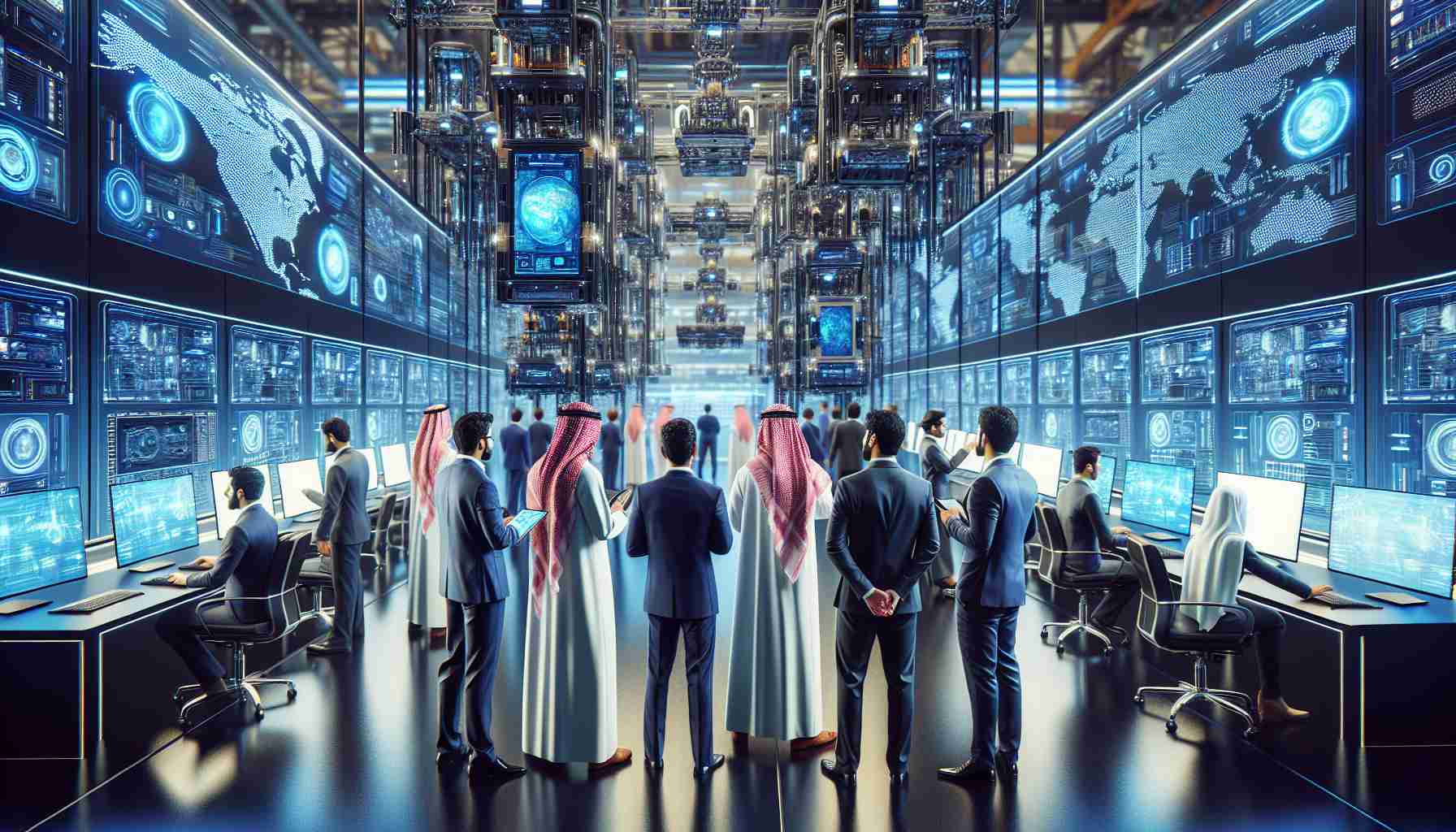Officials from the Saudi Data and Artificial Intelligence Authority (SDAIA) led by President Abdullah bin Sharaf Alghamdi have taken a significant interest in South Korea’s technology sector during their recent visit to Naver 1784, an innovative tech convergence building that stands as a testament to Naver’s consolidated technology prowess.
Visitors from SDAIA, an organization that orchestrates AI, data, and smart city strategies and research in Saudi Arabia, were immersed in firsthand experiences of futuristic technologies such as AI, digital twins, and robotics at Naver 1784. These interactive sessions opened pathways for technological collaboration discussions.
Naver 1784 is not just a building, but a beacon of robotics-friendly architecture and an exhibition ground for cutting-edge advancements in AI, digital twinning, robotics, and autonomous driving. It showcases to the world the remarkable strides taken in these domains by Naver, one of South Korea’s leading tech giants.
The visit, which included comprehensive tours and technical demonstrations, comes on the heels of previous visits by high-profile Saudi entities like the Ministry of Communications and Information Technology (MCIT), the National Information Center (NIC), and the National Data Management Office (NDMO), all affirming the global interest in Naver’s technological capacities and the potential for future partnerships.
Important Questions and Answers:
– Why is the SDAIA exploring technology collaboration with Naver?
The SDAIA is exploring technology collaboration with Naver to enhance its capacity in AI, data, and smart city technologies, which can contribute to Saudi Arabia’s Vision 2030 goals of diversifying its economy and increasing its technological competitiveness.
– What is Naver 1784, and why is it significant for technology delegations to visit?
Naver 1784 is a state-of-the-art technology hub that demonstrates Naver’s advances in AI, robotics, digital twinning, and autonomous driving. Visits by technology delegations are significant because they allow an exchange of knowledge and the exploration of potential partnerships that could lead to technological advancements in various countries.
Key Challenges or Controversies:
– Integrating foreign advanced technologies into the local Saudi market may present challenges in terms of adapting those technologies to suit local needs and regulations.
– Data privacy and security concerns may arise as increased AI implementation in various sectors requires the handling of sensitive personal and organizational data.
– There could be potential controversies around the impact of AI and robotics on job markets, with fears that such technologies might displace human workers, requiring a strategy for reskilling and workforce management.
Advantages:
– The collaboration could lead to potential technological growth in Saudi Arabia, boosting its capabilities in AI and smart city development.
– Access to Naver’s technology may facilitate the development of innovative projects and improve the efficiency and quality of services in Saudi Arabia.
– The exchange may offer opportunities for Saudi professionals and researchers to learn from Naver’s expertise and experience in the technology sector.
Disadvantages:
– Dependency on foreign technology may impede the development of the domestic tech industry in Saudi Arabia if not managed properly.
– There may be large financial costs associated with licensing, implementing, or collaborating on state-of-the-art technologies from companies like Naver.
– Cultural barriers and differences in business practices could pose challenges to establishing effective technology partnerships between Saudi Arabia and South Korea.
As the link to the main domain related to the article is not provided or explicitly mentioned, and to ensure accuracy, I will not speculate or provide an HTML link to an unrelated website.
Overall, the visit to Naver 1784 by Saudi officials is indicative of Saudi Arabia’s commitment to harnessing innovative technologies in their digital transformation journey. The potential collaboration could bring about mutual benefits, offering Saudi Arabia an opportunity to leapfrog into modernized infrastructures and enhanced AI and data analysis systems, while presenting Naver with a substantial market to expand its technological influence.

